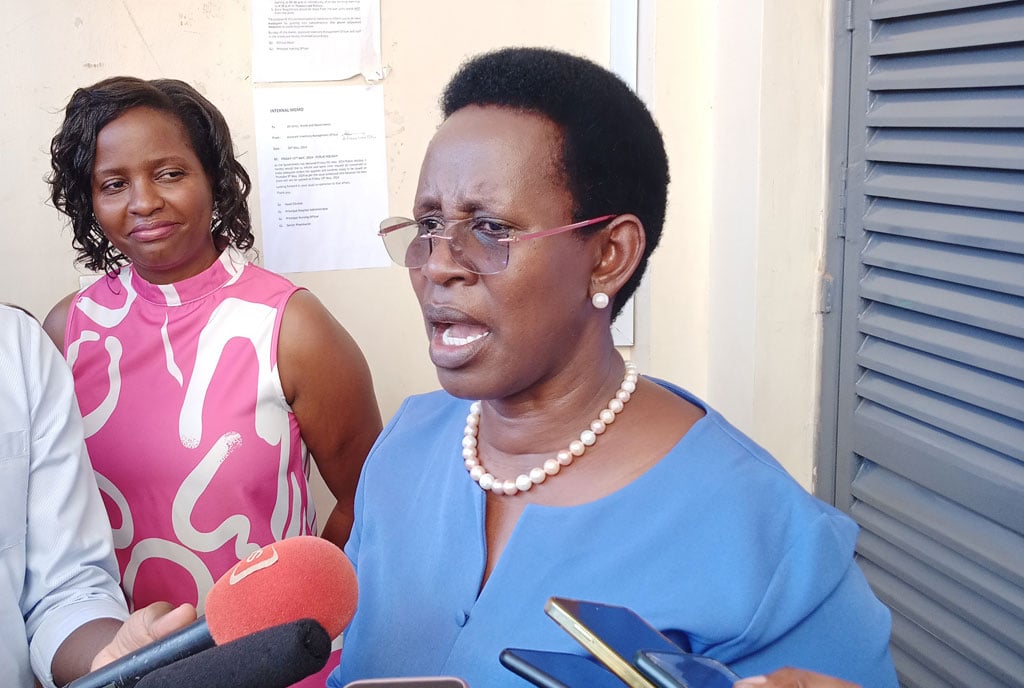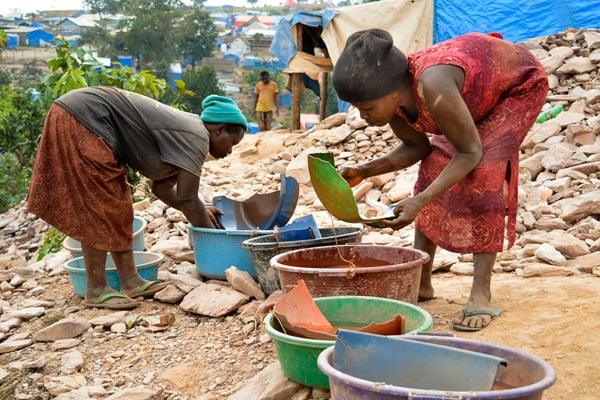Janet roots for more research on diseases affecting children

The director of ICHAD, Dr Fred Ssewamala (left) chats with Makerere University Vice Chancellor Prof Barnabas Nawangwe (centre) and other participants after the conference in Masaka City last week. PHOTO | ANTONIO KALYANGO
What you need to know:
- First Lady says children and adolescents in Sub-Saharan Africa face numerous ailments that hinder their development and future opportunities.
First Lady and Minister of Education Janet Museveni has stressed the need to strengthen the country’s research capacity in addressing health challenges among children and adolescents.
According to Ms Museveni, children and adolescents in Sub-Saharan Africa, particularly in Uganda, face numerous challenges that hinder their development and future opportunities.
“There is a need to build research capacity to address health disparities affecting adolescents and their families, which have worsened HIV prevalence and school dropouts,” she said in her speech delivered by Dr Jane Egau, the undersecretary in the Ministry of Education.
This was during the 2024 Forum on Child and Adolescents Global Health Research and Capacity Building organised by the International Centre for Child Health and Development (ICHAD) in Masaka City last week.
She added that 38 percent of children in Uganda live in acute poverty, which impacts their education and health, and called upon the government and partners to tackle such challenges head-on.
“Children, adolescents, and their families face multiple health issues, including HIV, TB, malaria, and nutrition deficiencies. Additionally, there is a rise in non-communicable diseases, which contributes to poor public health and in turn, affects their education,” she noted.
Ms Museveni hailed ICHAD for its complementary work through research in health and education sectors and other interventions, such as offering school fees and other materials that have been forcing many out of school.
Ms Jane Ruth Aceng, the minister of Health, in her remarks delivered by Dr John Baptist Waniaye, said the government values evidence-based research in the process of formulating policies to address existing gaps in health and other sectors.
“You’ve [ICHAD) been so instrumental in our work because your empirical findings have informed various programmes and policies aiming at improving the living standards of our people,” she said.
However, she expressed a need to build partnerships locally and globally aiming at strengthening a health system that responds to the existing gaps.
Prof Barnabas Nawangwe, the vice chancellor of Makerere University, urged the government to address emerging issues such as poor environmental health, rapid population growth, poverty, and unemployment, which are impacting public health.
“We need to transform the health system through innovative approaches to address health issues affecting communities. How can we as a country leave our scientists jobless on the streets yet we have gaps in our health sector?” he wondered.
He noted that they have endeavoured to build research capacity of Makerere University and applauded ICHAD for partnering with them.
Speaking at the same forum, which drew health workers and head teachers from more than 200 schools and researchers from universities in the USA and African countries, Dr Fred Ssewamala, the director of ICHAD, noted that poverty has crippled public health and education of adolescents across Sub-Saharan African countries.
“That’s why our focus centres on promoting innovation, capacity building, and public awareness to eliminate various social constraints and with research findings from multiple studies, we have been able to address several critical issues,” he said.
Dr Ssewamala further called upon all stakeholders in the fight against HIV to focus on economic empowerment because the worrying poverty rates among communities are a key driver of commercial sex, among other vices.
The conference was also addressed by Prof Mary McKay, the vice provost for Interdisciplinary Initiatives at Washington University, and Prof Noeline Nakasujja, the chair of the Psychiatry Department at Makerere University.




